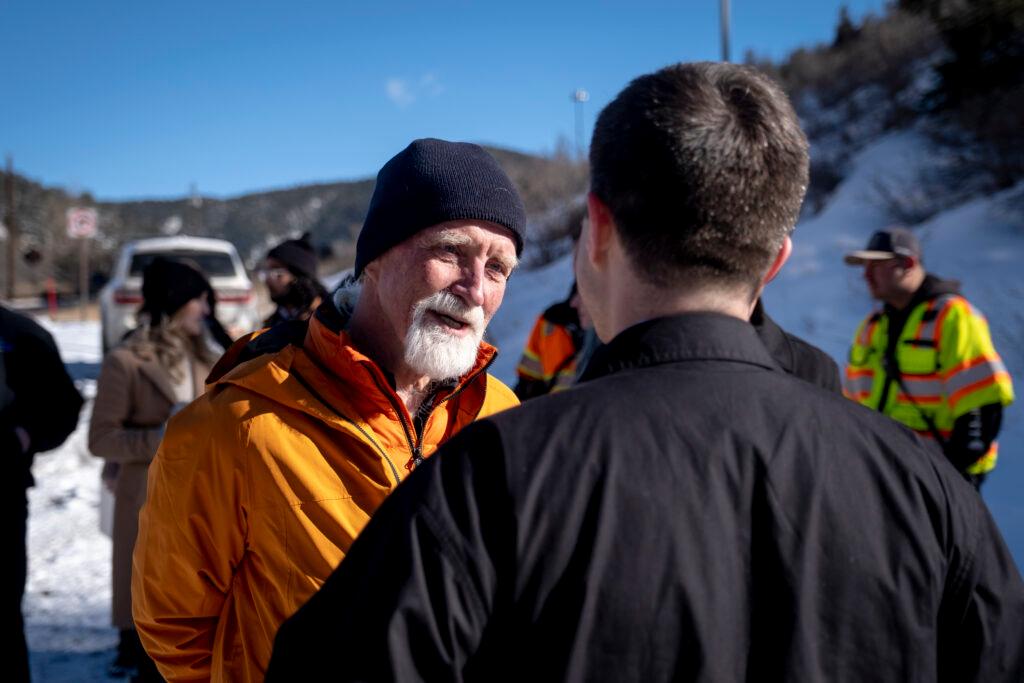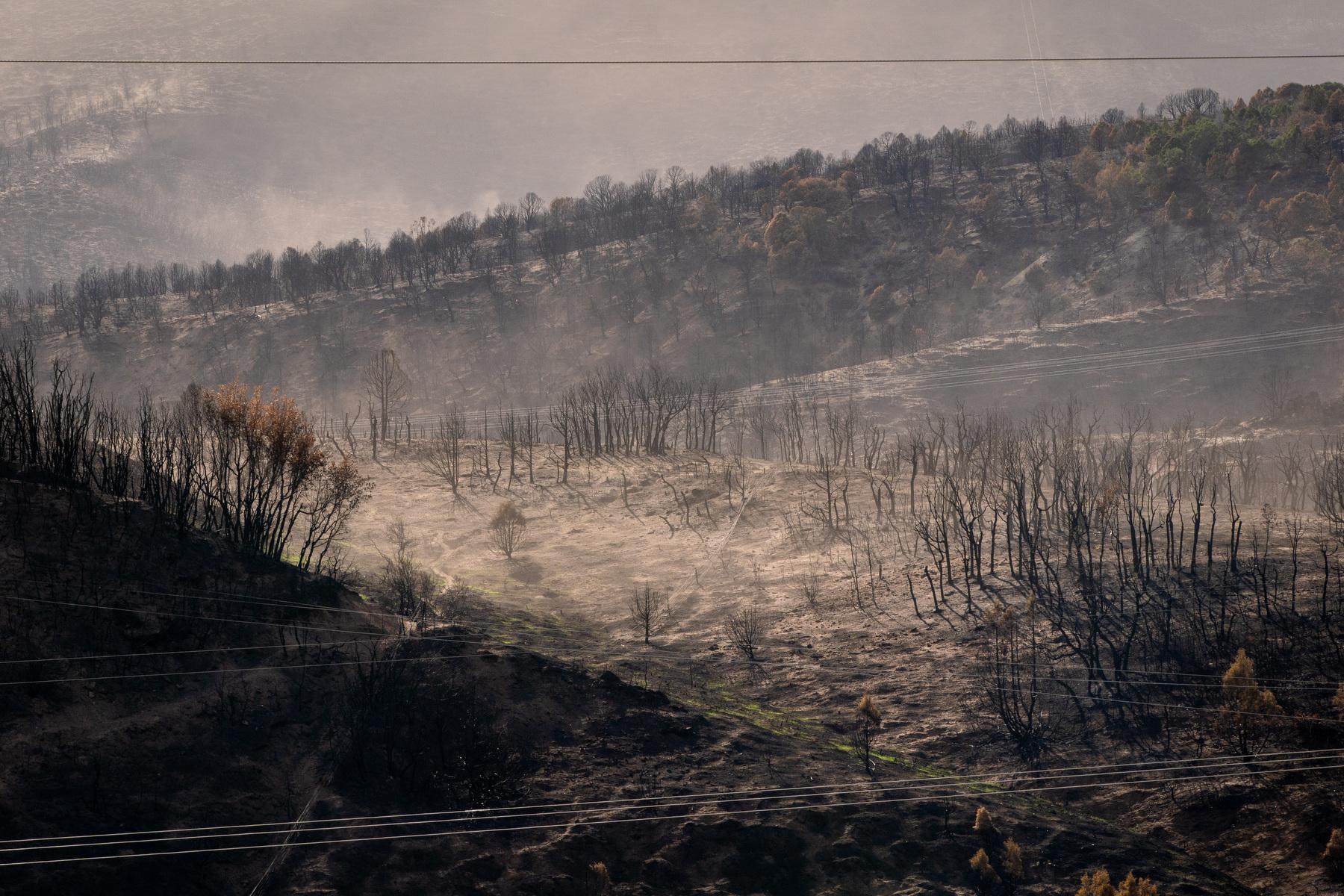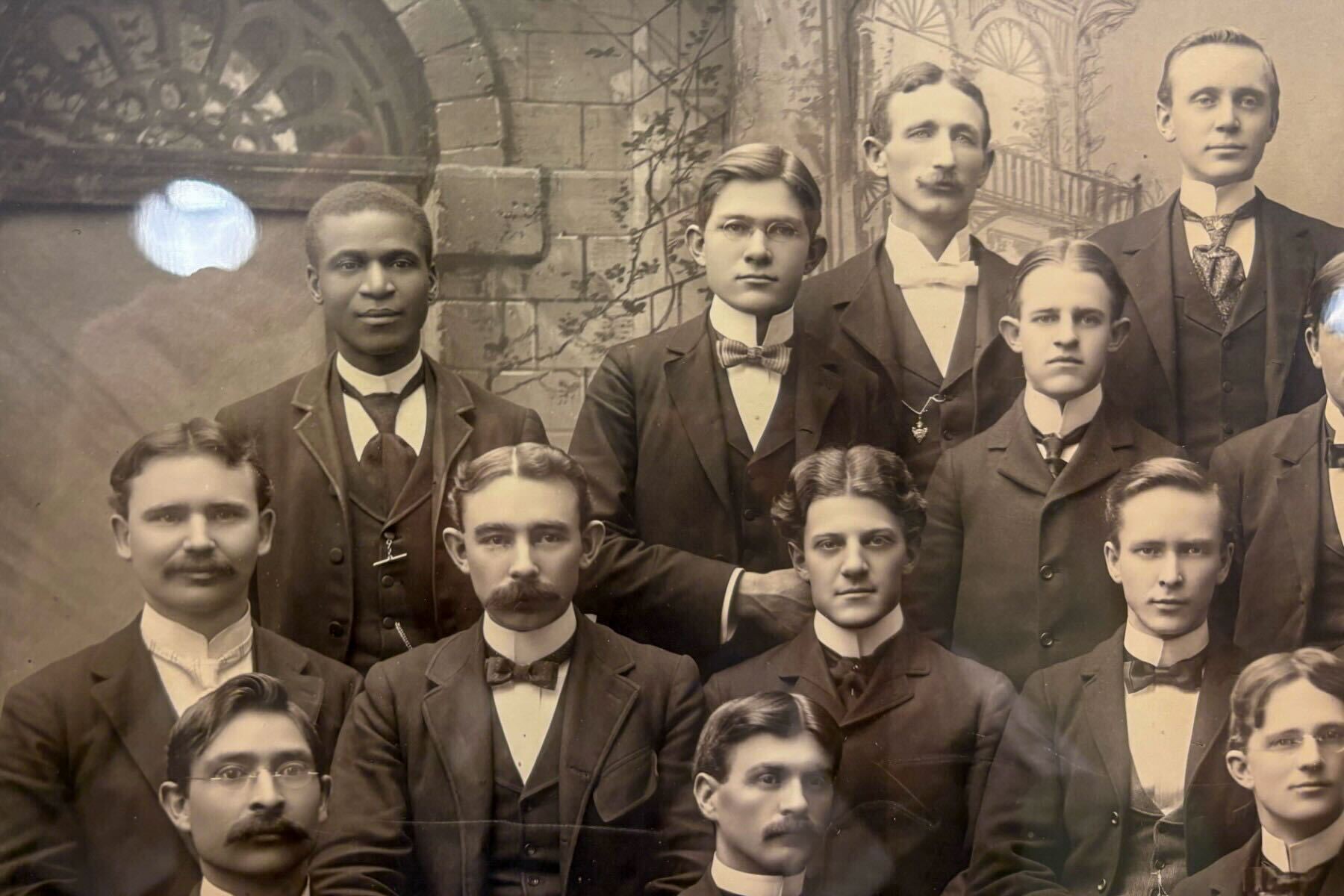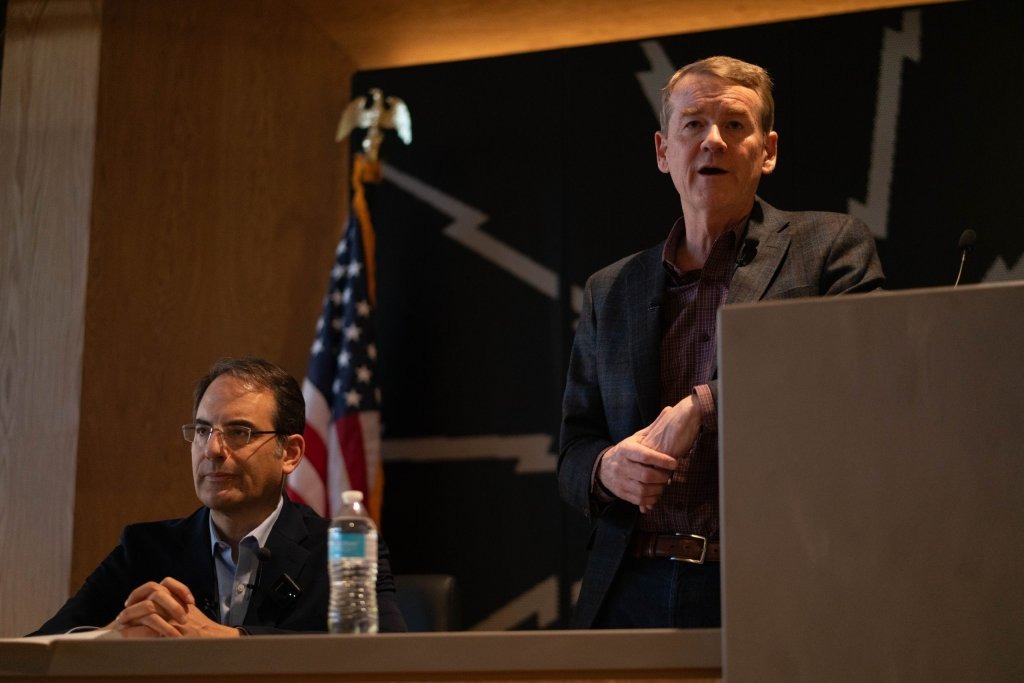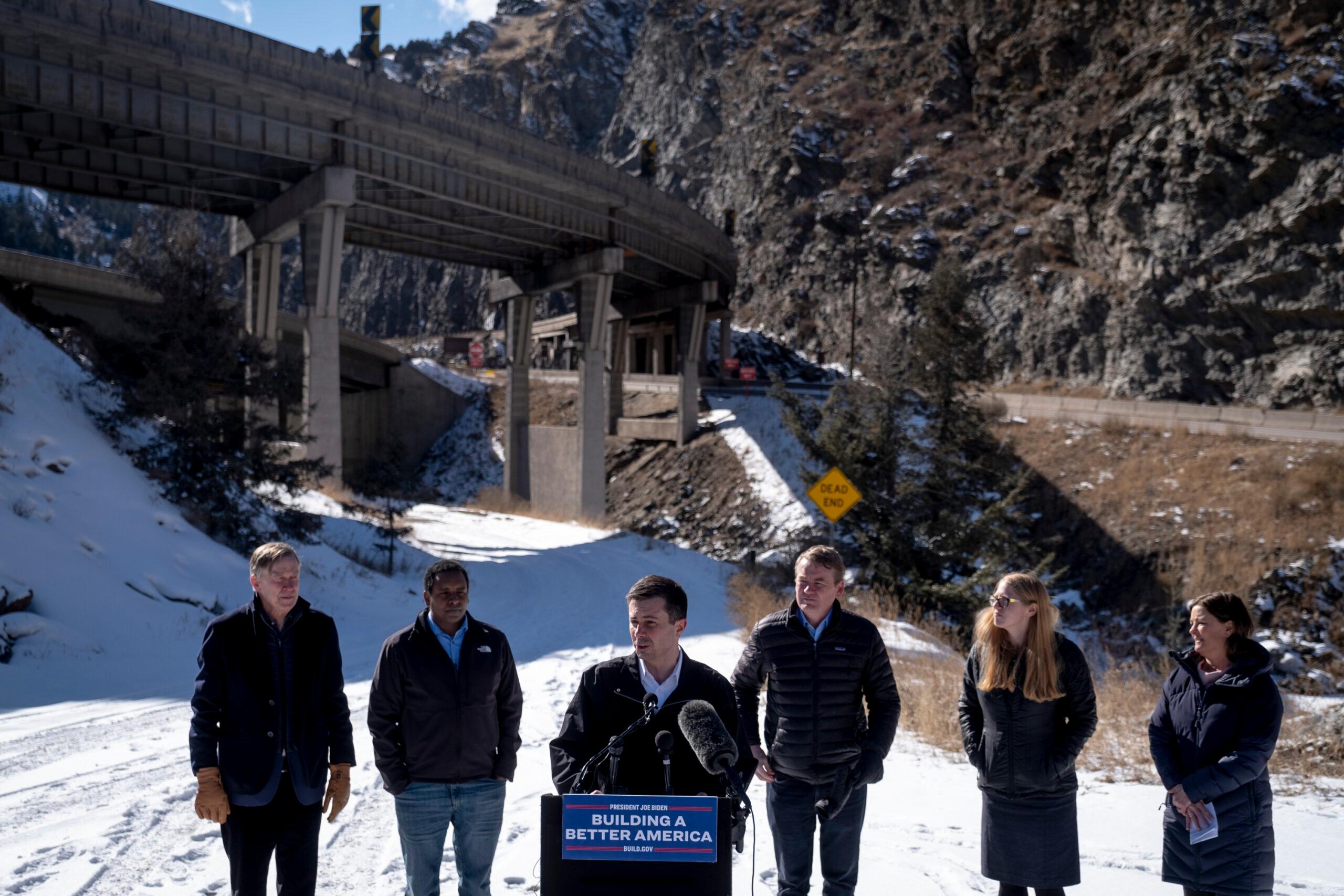
As cars rushed overhead on Interstate 70 at the “notorious Floyd Hill chokepoint,” U.S. Transportation Secretary Pete Buttigieg met with Colorado leaders on Thursday during his tour of the state to discuss a more than $600 million project that would significantly expand that painful stretch of interstate. He said the upgrade is helpful for both the economies of Colorado and the nation.
“This is part of what America's supply chains look like. And when trucks are backed up or unable to get to where they need to go in a timely fashion, that is something you will see in shipping times and in prices at the store,” Buttigieg said at a press conference Thursday. “That is one of the reasons why we have such a sense of urgency about deploying these infrastructure resources.”
Buttigieg was accompanied by state Democrats Gov. Jared Polis, Sens. Michael Bennet and John Hickenlooper, and Rep. Joe Neguse, as well as Colorado Department of Transportation executive director Shoshana Lew and I-70 Coalition director Margaret Bowes.
“Floyd Hill is an incredible pain point on I-70,” said Bennet, “both for Coloradans that are trying to get to and from the mountains, but also for everybody who's coming across the United States of America and has a reason to expect that they can travel on a hill that's actually safe.”
The hundreds of millions of dollars expected to fund the project will come, in part, from President Joe Biden’s 2021 bipartisan infrastructure bill, as well as state funds. Colorado is expected to receive nearly $5.5 billion in federal funding over the coming five years for infrastructure, like the Floyd Hill project, that would be used to improve roads, bridges, public transportation, airports, electric vehicle charging networks and highway safety programs.
“Leadership and commitment at the state level means that states like Colorado are especially well positioned to hit the ground running and take advantage of federal legislation and the federal funding that’s coming your way,” Buttigieg said.
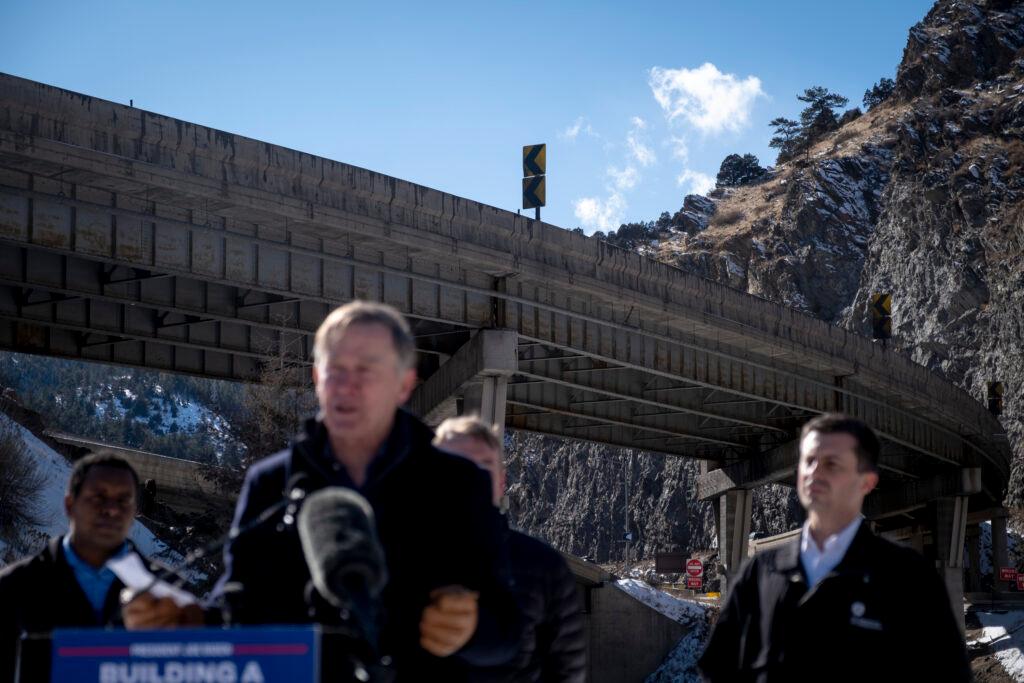
The Colorado Department of Transportation says the project will reduce congestion, expand the highway for more capacity, replace a deficient bridge, make improvements to interchanges and intersections in the area, and revamp the design of the highway. It will also add a new transportation service called Pegasus, build upon existing pedestrian and bicycle trails, coordinate rural broadband access, add two air quality monitoring stations and build two wildlife crossings.
Clear Creek County Commissioner Randall Wheelock, who’s been outspoken about public transit and climate change, says he supports the project because it helps alleviate inefficiencies like the Floyd Hill pinch point.
“But it's still a highway-based solution. And those are solutions that we need. We need to improve the efficiency of highways. But we also need to develop as much as we can those other systems.”
While officials touted parts of the Floyd Hill project aimed at mitigating climate change, such as public transit and electric vehicle charging, Buttigieg acknowledged that “transportation is the single largest contributor of greenhouse gasses in the U.S. economy.”
CDOT has selected design and construction partners for the project, executive director Shoshana Lew said Thursday. Several months ago, they completed an environmental assessment, as required by federal environmental law, and are sifting through public comments.
Director Lew said she expects work to begin on the early stages of the project by this summer and see it finished in five years.
On Friday, Buttigieg will tour a facility for the Roaring Fork Transit Authority on the Western Slope and take a look at the ongoing repairs to I-70 in Glenwood Canyon.
